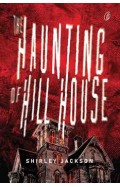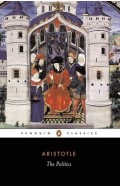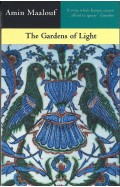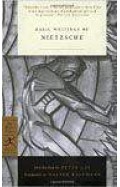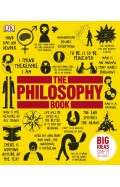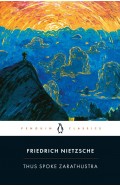The Shade of Longing and other Poems
By: Fatima Ijaz
-
Rs 420.75
- Rs 495.00
- 15%
You save Rs 74.25.
Due to constant currency fluctuation, prices are subject to change with or without notice.
The Shade of
Longing and Other Poems is a collection of poems that are personal keepsakes
for eras, people and places that no longer exist. The book is intended as a
portal to enter these otherwise lost worlds. The mystery of the past haunts us
and we wrestle with it – will we ever be rid of its shadow? Will we overcome
this persisting ailment? The collection traces the journey from one memory book
to another, reaching a state of not-there, not-here, to losing faith, to
finally reaching a sense of closure. On the way there are musings, detours,
some games of solitaire.
The contemplation of the past involves an evocative presence of a surreal
present – you are but transformed into re-living a time that simply does not
exist anymore. In doing so, you are in a heightened state of present-past – a
double consciousness that is more than the sum equal of its parts. It hovers
into the unknown and even becomes a new kind of state - neither past nor
present but akin to an alternate universe.
The story of this book begins in this
nowhereness in “Memory Book 1”. I feel that poetry communicates in a ‘slant’
and the first chapter of this book invites you to travel with it to a somewhat
forbidden place. The mood is neither right nor wrong, nor does it take sides –
for it constantly revisits old pain from multiple perspectives.
“Memory Book 2” takes an obsessive look at the
elusive, deceptive and rain nature of memories – occurring again and again as
endless water from the skies. It reconstructs in a water dream, instances that
have chased me to nervous and breathless wakefulness.
As if the assault of all this weren’t enough,
once you’ve stepped into the unchained past – a realm of the mind now, not
limited to time and place – you find yourself deep in the middle of the sea. I
call this state “Barzarkh”. This is the shadowy limbo where you may live but
never belong. It is the eternal traveler who can possess no certainties – for
the past is indeed dead but it exists as a metaphor in the mind. You wrestle
with the notion that perhaps it is merely imagination that pulls you and
nothing that is ‘real.’
You emerge out of the “barzarkh”, as a being
that is shaken to its core. You have experienced an invocation of ghosts,
forbidden and timeless realms, and endless recurrence that is true and untrue
at the same moment. It has changed you, made you turn into a ‘skeptic.’ You no
longer care for certainties, are in the mood for ambivalence and laugh at any
faithful representation of what has been your own life.
The final chapter, “Leave-taking” marks in a
line from Wallace Stevens; “the edge/Of one of many circles”. Memory is a
blackbird that is leaving you finally – the state that had overcome you is
letting go of its strange hold on you. This freedom comes at a cost and you are
now a changed person. The land of the dead – for nothing was alive or real here
– entered you and made you its own, but is now dying a second time.
The last three chapters at times indulge in
the absolute present and are not steady clockwork to a thematic movement. This
is similar to the mind that is here at one moment, and galloping into forgotten
lore at another.
These poems arrived in succession and lingered
as a candle-lit street on a windy night. Their lifespan was memory, dream and
hallucination. The specific shade was of a longing for these to persist – but
it was the doomed color of autumn. I hope that under its wing, it will provide
a gateway to travel to those mind-places that is one is afraid to visit alone.
The Shade of
Longing and Other Poems is a collection of poems that are personal keepsakes
for eras, people and places that no longer exist. The book is intended as a
portal to enter these otherwise lost worlds. The mystery of the past haunts us
and we wrestle with it – will we ever be rid of its shadow? Will we overcome
this persisting ailment? The collection traces the journey from one memory book
to another, reaching a state of not-there, not-here, to losing faith, to
finally reaching a sense of closure. On the way there are musings, detours,
some games of solitaire.
The contemplation of the past involves an evocative presence of a surreal
present – you are but transformed into re-living a time that simply does not
exist anymore. In doing so, you are in a heightened state of present-past – a
double consciousness that is more than the sum equal of its parts. It hovers
into the unknown and even becomes a new kind of state - neither past nor
present but akin to an alternate universe.
The story of this book begins in this
nowhereness in “Memory Book 1”. I feel that poetry communicates in a ‘slant’
and the first chapter of this book invites you to travel with it to a somewhat
forbidden place. The mood is neither right nor wrong, nor does it take sides –
for it constantly revisits old pain from multiple perspectives.
“Memory Book 2” takes an obsessive look at the
elusive, deceptive and rain nature of memories – occurring again and again as
endless water from the skies. It reconstructs in a water dream, instances that
have chased me to nervous and breathless wakefulness.
As if the assault of all this weren’t enough,
once you’ve stepped into the unchained past – a realm of the mind now, not
limited to time and place – you find yourself deep in the middle of the sea. I
call this state “Barzarkh”. This is the shadowy limbo where you may live but
never belong. It is the eternal traveler who can possess no certainties – for
the past is indeed dead but it exists as a metaphor in the mind. You wrestle
with the notion that perhaps it is merely imagination that pulls you and
nothing that is ‘real.’
You emerge out of the “barzarkh”, as a being
that is shaken to its core. You have experienced an invocation of ghosts,
forbidden and timeless realms, and endless recurrence that is true and untrue
at the same moment. It has changed you, made you turn into a ‘skeptic.’ You no
longer care for certainties, are in the mood for ambivalence and laugh at any
faithful representation of what has been your own life.
The final chapter, “Leave-taking” marks in a
line from Wallace Stevens; “the edge/Of one of many circles”. Memory is a
blackbird that is leaving you finally – the state that had overcome you is
letting go of its strange hold on you. This freedom comes at a cost and you are
now a changed person. The land of the dead – for nothing was alive or real here
– entered you and made you its own, but is now dying a second time.
The last three chapters at times indulge in
the absolute present and are not steady clockwork to a thematic movement. This
is similar to the mind that is here at one moment, and galloping into forgotten
lore at another.
These poems arrived in succession and lingered
as a candle-lit street on a windy night. Their lifespan was memory, dream and
hallucination. The specific shade was of a longing for these to persist – but
it was the doomed color of autumn. I hope that under its wing, it will provide
a gateway to travel to those mind-places that is one is afraid to visit alone.
Zubin Mehta: A Musical Journey (An Authorized Biography)
By: VOID - Bakhtiar K. Dadabhoy
Rs 892.50 Rs 1,050.00 Ex Tax :Rs 892.50
Sapiens A Brief History of Humankind
By: Yuval Noah Harari
Rs 2,630.75 Rs 3,095.00 Ex Tax :Rs 2,630.75
Big Capital in an Unequal World: The Micropolitics of Wealth in Pakistan
By: Rosita Armytage
Rs 1,345.50 Rs 1,495.00 Ex Tax :Rs 1,345.50
The Quest For Meaning: Developing A Philosophy Of Pluralism
By: Tariq Ramadan
Rs 1,185.75 Rs 1,395.00 Ex Tax :Rs 1,185.75
The Basic Writings of Nietzsche
By: Peter Gay/Sigmund Freud
Rs 3,865.50 Rs 4,295.00 Ex Tax :Rs 3,865.50
Sapiens A Brief History of Humankind
By: Yuval Noah Harari
Rs 2,630.75 Rs 3,095.00 Ex Tax :Rs 2,630.75
Big Capital in an Unequal World: The Micropolitics of Wealth in Pakistan
By: Rosita Armytage
Rs 1,345.50 Rs 1,495.00 Ex Tax :Rs 1,345.50
No recently viewed books available at the moment.
Zubin Mehta: A Musical Journey (An Authorized Biography)
By: VOID - Bakhtiar K. Dadabhoy
Rs 892.50 Rs 1,050.00 Ex Tax :Rs 892.50
Sapiens A Brief History of Humankind
By: Yuval Noah Harari
Rs 2,630.75 Rs 3,095.00 Ex Tax :Rs 2,630.75
Big Capital in an Unequal World: The Micropolitics of Wealth in Pakistan
By: Rosita Armytage
Rs 1,345.50 Rs 1,495.00 Ex Tax :Rs 1,345.50












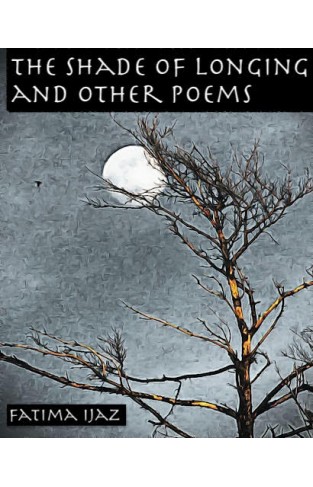
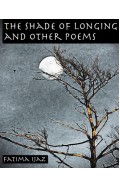
-120x187.jpg?q6)






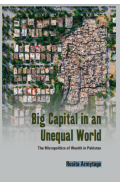
-120x187.jpg?q6)


